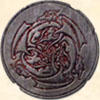Chapter 1 - Class - Character Kits - Other Kits
Spy
Note: This kit is taken from the book Skills and Powers.
In any campaign there is bound to be intrigue, conspiracies, and insidious plots.
Uncovering these secrets is the job of the spy. As the scout crosses enemy lines and
infiltrates dangerous wilderness areas to learn vital information, so does the spy wend his
way through all levels of society. He attends parties or sits in smoky taverns, drinking,
dancing, or gambling—all the while noting who is speaking to whom, what is being
discussed, (and what isn’t being discussed), who’s present and who’s absent, and what
are the latest rumors and gossip. Spies often choose to become adventurers, as that
profession is the perfect cover. Few think twice when a new group of heroes comes into
town. In most campaigns, adventurers are just accepted—if not granted a few favors in
case their unique talents are ever needed. This allows spies to go almost anywhere
without arising suspicion.
If this kit is chosen, the player should discuss with the DM exactly who the spy is
supposed to be spying on, and who the spy’s employer is. It is possible that the spy is
between missions, or is seeking additional income as an adventurer. Spies tend to be
educated and versatile. Roll 2d6 to determine the social rank of a spy character.
2d6 roll Rank
2–4 Lower Middle Class
5–12 Upper Middle Class
Requirements: Spies must be able to think on their feet and smoothly talk their way
out of situations in which their cover may be blown. Therefore, all spies must have
minimum Intelligence/Reason and Charisma/Appearance scores of 13. The spy kit is
barred to half-ogres, as well as any optional PC race that is size large (restriction z from
the Other Races section of Chapter Three), and thri-kreen. The kit is open to all classes.
Weapon proficiencies: Spies are only limited in weapon choice by their adventuring
class. However, depending on their cover identity, spies may be limited in the weapons
they carry. For example, a spy impersonating a wizard cannot bring his favorite bastard
sword along as part of the disguise. Many spies prefer small, easily concealed, or easily
disguised weapons (a walking cane can double as a club or hide a thin blade). This lets
spies defend themselves if they are discovered. Such weapons include: club, dagger,
knife, and darts. If the campaign involves much courtly intrigue, “ceremonial” weapons
such as various swords also qualify.
Recommended nonweapon proficiencies: Disguise, forgery, dancing, etiquette,
heraldry, riding, local history, modern languages, herbalism, reading/writing, appraising,
gaming, musical instrument, reading lips, spellcraft.
Equipment: The spy’s cover identity may dictate what equipment he can carry without appearing incongruous.
Recommended traits: Alertness, empathy, glibness, impersonation, light sleeper,
lucky, music (any), precise memory.
Benefits: Because of the spy’s suave charm, he receives a +2 bonus for all NPCs’
reaction rolls.
Hindrances: The foremost problem with being a spy is that if his cover identity is
blown and he is captured, the penalty is often death. It is also possible that old foes may
later determine the spy’s true identity and seek revenge against him.
Wealth: Standard for the character’s class.
